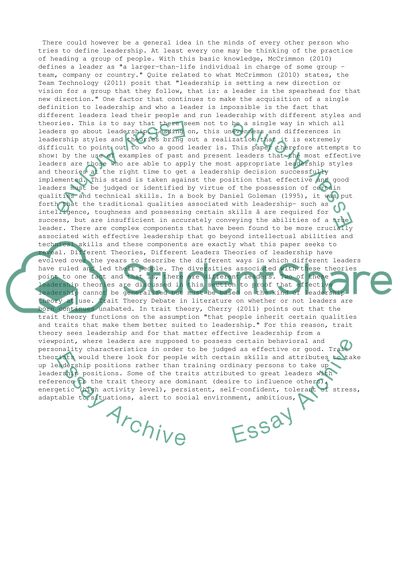Cite this document
(“Leadership Theories and Practice Essay Example | Topics and Well Written Essays - 1250 words”, n.d.)
Leadership Theories and Practice Essay Example | Topics and Well Written Essays - 1250 words. Retrieved from https://studentshare.org/management/1433223-leadership-theories-and-practice
Leadership Theories and Practice Essay Example | Topics and Well Written Essays - 1250 words. Retrieved from https://studentshare.org/management/1433223-leadership-theories-and-practice
(Leadership Theories and Practice Essay Example | Topics and Well Written Essays - 1250 Words)
Leadership Theories and Practice Essay Example | Topics and Well Written Essays - 1250 Words. https://studentshare.org/management/1433223-leadership-theories-and-practice.
Leadership Theories and Practice Essay Example | Topics and Well Written Essays - 1250 Words. https://studentshare.org/management/1433223-leadership-theories-and-practice.
“Leadership Theories and Practice Essay Example | Topics and Well Written Essays - 1250 Words”, n.d. https://studentshare.org/management/1433223-leadership-theories-and-practice.


